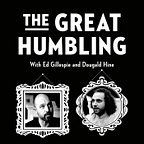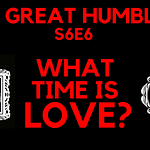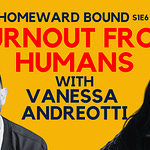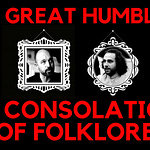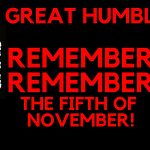We started this podcast in the early weeks of the pandemic, talking about the stories circling around it. A crisis had come out of the corner of almost everyone's field of vision and became, within weeks, the only thing in the news. Two years on, something similar has happened, so we arrived at this episode wondering whether or not to talk about Ukraine.
Dougald remembers Ivan Illich's short text, 'The Right to Dignified Silence' (in In the Mirror of the Past), written in support of West German campaigners who refused to enter into a reasoned argument about nuclear weapons, choosing instead to express themselves through public silence.
This reminds Ed of the Silent Parade in Manhattan in 1917 to protest violence against African Americans, and also of the wordless presence of XR's Red Rebel Brigade.
Ed quotes from Douglas Rushkoff's 'Doing Less to Help Ukraine':
Instead of filling our channels and brains with uninformed opinions, we should stop and breathe. We are not there, we not informed, and we should shut up — except, maybe, to stand in solidarity with our fellow human beings. We can bear witness to what is happening. Instead of adding more conflict and confusion to the crisis, we can help metabolize the trauma of our fellow beings. We are all connected, after all.
Dougald reflects on L.M. Sacasas's comment about the impossibility of being silent in online spaces. We either contribute to the noise, or we disappear altogether from view.
We wonder about the role played at a moment like this by the kind of quieter online spaces – the 'dark forests' of the internet we discussed at the end of last series – in contrast to the escalatory patterns of social media.
Dougald quotes Justin E.H. Smith on how social media turns protest into 'upvoting' and 'downvoting' options like creating a no-fly zone, with terrifying implications.
Ed speaks about the 'onion layers' of history that leave us all weeping, and we discuss Branko Marcetic's article on the historical context of Ukraine.
Ed brings in the heartening story of the two Scottish gardeners who drove to Ukraine to rescue three students trapped in the city of Sumy.
This reminds Dougald of the story of Illich being asked by a friend, "Don't you care about the starving children in the Sahel?" No, he replies, because to care would mean selling my belongings and going there and doing something, and I am not going to pretend that this is my intention. Illich's point is that we use the language of care too lightly. The example of those Scottish gardeners is what care, in Illich's sense, actually looks like.
We ask why this war is dominating the headlines, a question brought into focus by Ahmed Abdulkareem's article, 'Tears for Ukraine, Sanctions for Russia, Yawns for Yemen, Arms for Saudis'.
One layer within this is racism: the victims in Ukraine 'look like us', as more than one journalist has let slip. Dougald quotes from a fierce article by the Kenyan cartoonist Patrick Gathara that turns the foreign correspondent's lens on Europe and its 'tribal conflicts'.
Another layer is the fear we rightfully feel at the thought of nuclear esculation. Ed brings in Vladimir Pozner's talk at Yale and our blithe indifference (until this war) to the threat of nuclear weapons.
A further layer involves the way that this war reveals the rickety foundations of the 'mansion of modern freedoms' (a phrase that comes from Dipesh Chakrabarty's The Climate of History, with echoes of Vanessa Andreotti's 'The House Modernity Built'.) Dougald quotes from Rhyd Wildermuth's Substack essay, 'The Haunted Mansion of Modern Freedom', which wonders about what this war has done to 'the fantasy of historical progress, urban civic religion, and the Pax Capitalis', and how far this is colouring the Western response. There's an invitation to sit with current events as part of a larger process of the collapse of the house modernity built.
To sit with that kind of awareness is overwhelming, and as we turn to the question of 'what we can do', the first step is to find our way back to our bodies and the humility of our limited ability to 'do' anything.
But we mention the organisations worthy of support that Justin E.H. Smith lists at the end of another recent essay, 'Silence, Insouciance, Takemanship'.
Dougald remembers the beginnings of the City of Sanctuary movement in Sheffield and expresses a hope that we might broaden the current moment of generosity towards Ukrainean refugees towards the kind of culture of grassroots hospitality towards refugees and asylum seekers which that movement works to build.
We talk about the difference between 'praying for peace' and 'praying peace', coming into alignment with the field of peace rather than war. (The distinction comes from Gordon White.)
And we remember Wendell Berry's words about 'the peace of wild things'.

